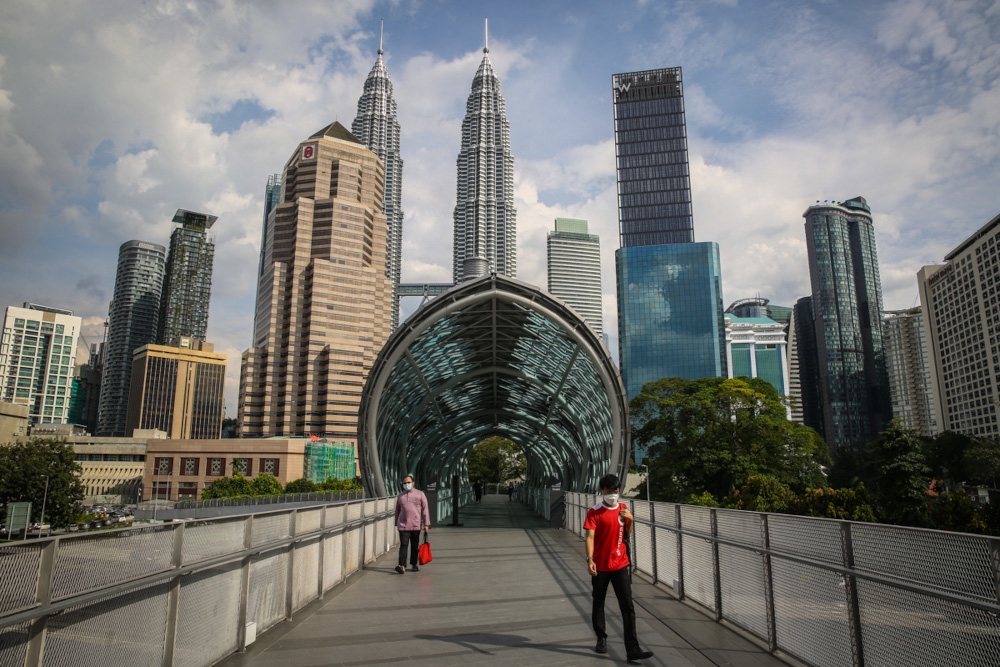DECEMBER 28 — There are few organisations who get as much hate, and perhaps deserve it, as much as the Malaysian Employers Federation (MEF).
Every year whenever proposals are made to improve employee welfare, the MEF will bleat about “needing time.”
No one gives employees time to adjust their spending or budgets when inflation goes up.
Take, for instance, Grab fares these days. Just a few years ago, it would cost me less than RM6 to go to SS2 from my place. Two days ago, I had to pay RM16.
Most days, going home to Kelana Jaya from 1 Utama costs me RM20-something, which is dumbfounding when I paid that much to go to KLCC just earlier this year.
Sure, I could take the train but with overcrowding and reliability issues, sometimes a rideshare is my only option.
I have to wait until 2024 apparently to get a decent MRT interchange with the Kelana Jaya LRT line so even though malls such as 1 Utama and Tropicana Gardens are both connected to the MRT, the only interchanges with the Kelana Jaya line are all the way in Kuala Lumpur.
These days I also try to bake my own bread in the air fryer or flatbread on the stove because it’s cheaper and healthier.
The freezer is my best friend because it’s where I now store leftovers and fresh produce to avoid waste.
I can adjust my lifestyle and habits because it’s just me I need to be responsible for, unlike many of my peers who are sandwiched between providing for their own nuclear families while also supporting aged parents.
My same-age friends now spend a lot of time at the hospital as the older their folks get, the more health problems that crop up.
Some have lost parents to cancer or seen them warded with serious ailments in the last two years, with healthcare outcomes being made even more precarious thanks to Covid-19.
I have friends who have gone into debt paying medical bills for their family, while having nothing left over for their own medical needs.
“Why don’t they have insurance?” People who say that have no idea how expensive it gets the older you are. So if you’re a working person and if you have to pay for coverage not just for yourself, but for your parents, it all adds up.
For poorer families, insurance just isn’t an option when every last sen is being stretched.
No matter what financial gurus or overly comfortable CEOs might say, you cannot budget yourself out of financial difficulties. Not when you have next to nothing to budget.
The problem with too many employers in Malaysia is their accounting relies far too much on expecting workers to accept whatever salary.
Employees are expected to have their own transport; yet going to work (vehicle loans, gas, parking, maintenance) eats up most of their take-home pay.
Then we have our economy minister just telling people to “just not buy chicken” if it’s expensive. Next he will probably tell us the sun rises in the east but that is the problem with anyone trying to advise those with no money, when they have never experienced being poor.
It is seriously just cheaper to die than to live, and at this rate it feels as though it is something expected of the poor.

Can’t afford to live? Well then, die.
It would be nice if I was exaggerating but in Canada, those with disabilities or living in conditions that the government is unable to provide reasonable accommodations for are advised to opt for assisted death.
Will that be our future, then? In a world where the children of Malaysian billionaires glibly share Instagram stories of their umpteenth vacation overseas, do we just expect the poor and disabled to opt for the simpler and cheaper alternative of offing themselves?
So my advice to the MEF is this: if landlords will not accept delays, and neither will cashiers at grocery stores to get what they are owed, why should workers keep waiting another few decades to be paid acceptable wages?
Maybe it’s time instead for employers to be just as judicious about their own personal spending the way they expect their employees to be.
If you can’t pay your workers, the problem isn’t your workers but you.
* This is the personal opinion of the columnist.




















